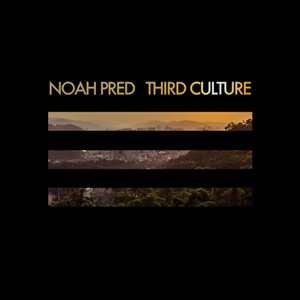Noah Pred Third Culture
Having moved in his youth from the Bay Area to the isolated remoteness of Canada’s […]

Having moved in his youth from the Bay Area to the isolated remoteness of Canada’s West Coast and later spending time in Vancouver, Montreal, and Toronto before relocating to Berlin in 2011, Thoughtless Music boss Noah Pred is no stranger to packing up and forging a new path in an unfamiliar place. It’s no secret that many of Canada’s brightest electronic talents tend to head to Europe when their career reaches a tipping point, and Pred is no different. Four years have passed since Pred’s last full-length, Blind Alignments, but his latest LP, Third Culture, is more of a refinement of his style than a total reinvention.
Though his collaborations with New York’s Marc Deon (“Devil’s Quadrant,” “Your Signal”) and his work with Toronto’s Rosina (“Circles & Circles,” “All Alone,”) do find Pred stretching out his production approach, they do so without compromising the identity he has been carefully crafting over the past decade. Third Culture is a precise, nuanced effort, and Pred strips down every sound for maximum impact. Throughout the album, he balances pulsing techno basslines, restrained rhythms, and muscle-memory tech-house grooves, making sure that each element, whether it’s a processed vocal sample, a crisp synth line, or a meticulously crafted loop, is delivered with focus and purpose. “Questions,” which features a thought-provoking monologue from label cohort Deepchild, drives the trajectory of the album’s first half and is one of the LP’s standout tracks. “Phantom in a Jar” is built on a chopped-up, repetitive vocal sample and a low-slung bassline. Deon’s slow-burning vocals on “Devil’s Quadrant” simmer down before reaching for an emotional boiling point. “Ghostbusser” offers up a beatless counterpoint that is bathed in analog washes; the track also provides some texture and space within the arch of the album.
With vocals and collaborations on almost half the tracks, Third Culture could have easily become unfocused, but Pred ties enough threads together to maintain a cohesive feel. Moreover, the music is well arranged and includes both the hesitant build-ups and lean layering of sounds that have been a staple in his past output. Pred’s time in Berlin has obviously opened him up to new ways of looking at his music and motivated him to work with other artists, but it hasn’t definitively changed who he is in the studio.

